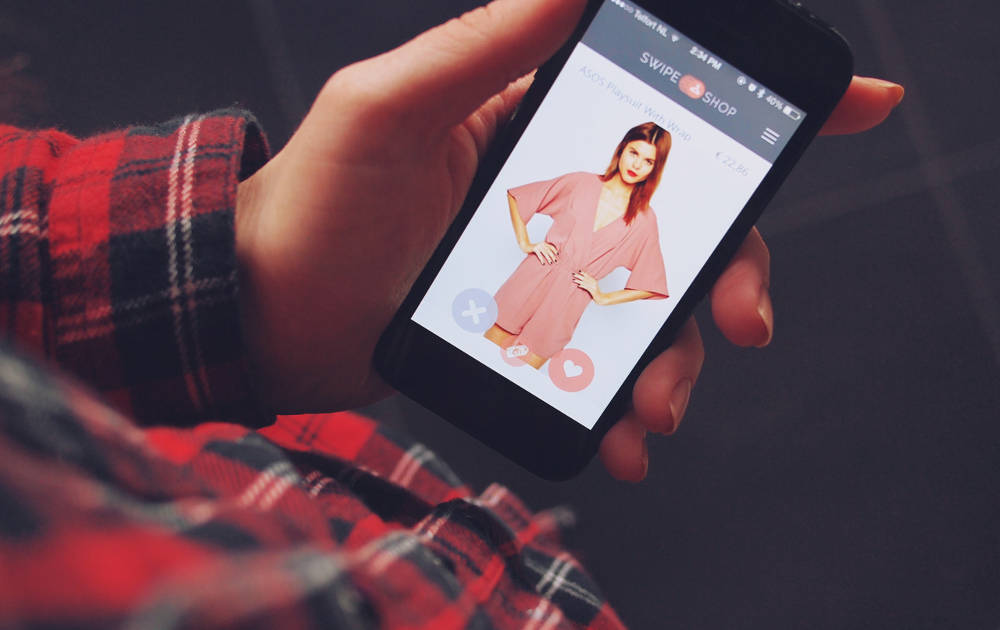[Photograph by Daria / epicantus under Creative Commons]
Till recently, buyers were influenced by brand advertisements or word of mouth, which motivated them to visit brick and mortar stores to buy a brand. In the store, salespersons further educated the buyer about the brand. Based on inputs from these myriad sources, the buyer purchased the brand. The buyer pursued a perfectly linear way of buying.
Let us come to the millennials—those born between 1982 and 2000. They are on the way to becoming the most dominant cohort. They are armed with smart devices, addicted to social networking sites, and are ready to share their experiences with the rest of their tribe who take decisions based on them. And when it comes to shopping, the millennials—also called the 'screen generation' given their proclivity for always staring at the screen—want to shop at a time and on a device convenient to them.
Watch a video of this episode or continue reading
Episode 19: New Rules of Business
This is how a millennial shops: she is on Facebook and sees a post from her friend about a wonderful jacket by Zara. She likes what she sees. She starts researching on the Zara jacket on the Internet. As a first step, she checks out review and rating sites. Here too she reads positive reviews on the jacket.
At the next opportunity, when she is passing a Zara store, she steps in to check it out to see how it looks and feels on her. She likes herself in the jacket. While still at the store, she takes out her smartphone and goes to a price comparison site. She discovers that the jacket is available at a promotional price on Amazon.com. She places an order on Amazon.com from her smartphone and the payment is debited to her credit card whose details the site has. The jacket is delivered to her home in two days. This buying process is non-linear.
Non-linear buyers want to start their shopping journey on one channel and continue across multiple channels, till the shopping process is completed. This process is also called multi-channel or omni channel shopping. The multiple channels through which a customer undertakes her journey can be looked upon as multiple lanes on an expressway.
Take yourself—you want to travel from point A to point B using an expressway. You may start your journey on one lane and depending on the traffic and other conditions, seamlessly move across lanes till you reach your destination. That is what the technology-savvy customers of today desire. Armed with a smart device, they want to seamlessly navigate through multiple channels depending upon their mood, device and other factors.
Traditional brick and mortar retail stores are troubled by this non-linear buying behaviour. They contemptuously refer to such buyers as 'fit lifters' because they check out the fitting and size in a brick and motor store, but order online. Surprisingly, most of them have turned a Nelson's eye to this change in behaviour. This, of course, does not change reality. Ignoring this change is detrimental to the long-term health of their business.
However, progressive retailers, who wish to remain relevant, offer this convenience to their customers and have adapted their business model to cater to non-linear buyers. The multi-channel or omni channel shopping experience they offer include:
-
Website
-
Mobile app
-
Presence on social media
-
Presence on price comparisons sites
-
E-payment gateways
In addition to this change in buying behaviour, traditional retailers have seen their business being snatched away by e-tailers who, bankrolled by investors, offer steep and non-stop discounts to lure buyers.
To take on the e-tailers, traditional retailers are adopting strategies to fight back and protect their turf:
-
Training salespersons to be authentic consultants: They can help customers make the right choice of merchandise. An e-tailer finds it difficult to compete on this parameter.
-
Reducing size of the retail store to bring down fixed cost without compromising on variety and options: One of the disadvantages of having a physical store is, enormous investment in real estate. They can mitigate this by dramatically reducing the size of their stores without compromising on the assortment available—they keep fewer assortments in the store, but the salesperson has an iPad to access the inventory at the company’s warehouse. So, if the store doesn't have the product a customer wants, the salesperson can check if it is available at the warehouse, take the order and have it delivered to the buyer’s address.
-
Price comparison software: Now retailers are themselves offering price comparison apps, which a shopper can access in the retail store itself. This gives buyer's a bird’s eye view of the prices and deals being offered by the store and others.
-
Guarantee of purchase: Because the brick and mortar stores have a physical presence, customers know where to come to get their complaint addressed. Hence it inspires more confidence in customers compared with e-tailers. Riding on this advantage, the stores also offer extended warranty to customers on their purchase. This acts as an additional revenue stream for them.
-
Personal finance: Traditional retailers can tailor-make finance packages to meet individual customer's requirements. E-tailers find it difficult to offer this service.
Bottom line: Traditional retailers have to accept the fact that buyers' behaviours are changing. The millennial buyers who are increasing in dominance are:
-
Time rich and cash poor
-
Armed with smart devices that are loaded with apps and are always connected to the Internet
-
Part of a thriving online community
-
Desirous of having customized / personalized merchandise and promotional offers.
Progressive retailers are modifying their business model and making it multi-channel-compliant so that they can win over buyers by catering to these behavioural changes.
The multi-channel strategy is not restricted to retailing. Several industries including banking, entertainment and hospitality too are adopting a multi-channel strategy to keep their millennial customers happy and to stay relevant.
If you have any questions mail us at askrajesh@foundingfuel.com

